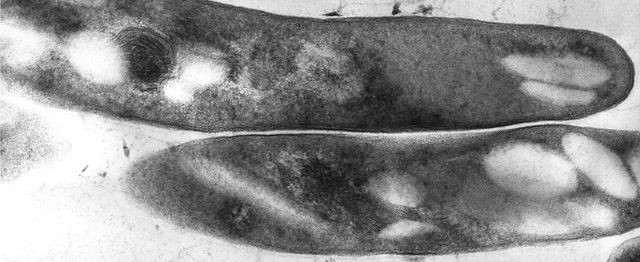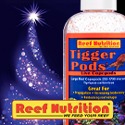
Years ago, I worked a few seasons in the Alaskan crab fisheries. As one might expect, this is the kind of setting where you’re going to meet some pretty tough dudes–definitely not the type to fret over little bumps and scrapes. But there was one thing that frankly scared the hell out of all of us–a condition artlessly referred to as “fish poisoning.” King crab in particular are very spiny; sloppy handling on the part of an careless deckhand can result in deep puncture wounds that are highly susceptible to infection of “bulla.” Bulla is a condition characterized by nasty skin lesions that are caused by Mycobacterium marinum, a microbe that lives in both marine and freshwater habitats worldwide. Also called fish tuberculosis, it is related to human TB as well as leprosy. So it is really, really bad. And, it is very difficult to treat, especially for the immunocompromised. Any time that my shipmates or I got poked, we nervously observed the site of the wound for days and weeks, watching for the telltale signs of mycobacteria poisoning–reddish or purplish streaks that run up the limb, a discharge of pus at the wound and localized pain to the touch.
This was a fear that always stayed with me throughout my subsequent years of work in the aquarium industry, kept alive by the occasional report of some fishkeeper somewhere losing life or limb to mycobacteria infection (i.e. aquarium granuloma). So, it was not without some incredulity that I considered the implication of claims rehashed in a recent article floating around on social media. The article describes findings in a 2007 study that seem to suggest that a soil mybacterium, M. vaccae, can act like an antidepressant on the human body.
In the study, researchers injected mice with heat-killed M. vaccae and then evaluated the subjects for “quality of life.” Compared to controls, experimental groups exhibited markedly different emotional behaviors and serotenergic activities. In short, according to the interpretation of the investigators, the treated mice were happier.
The recent article about this paper, published in an online gardening website, surmises that the emotional boost people get from working in or around soil could be linked to this bacterium. Supposedly, touching it, breathing it, and getting it into cuts in the skin are all it takes for inoculation, which lasts for as long as three weeks (well, at least in rodents). While it may be a fairly wide extrapolation, it does make one wonder; if this could be true in the case of gardening, could it be so for aquarium keeping? Could there really be any benevolent aquatic mycobacteria out there that can do the same?
It’s interesting to ponder. But I most definitely won’t be shooting up with any fish water any time soon. Regardless of all of the little intricacies that could be at play, I suspect that aquarists (and gardeners, for that matter) get enjoyment from their hobby simply because they enjoy doing it. It’s certainly more than enough motivation for me.
To review the paper, please visit: http://www.ncbi.nlm.nih.gov/pmc/articles/PMC1868963.
To read the article about this study, visit: http://www.gardeningknowhow.com/garden-how-to/soil-fertilizers/antidepressant-microbes-soil.htm.










0 Comments